MercoPress. South Atlantic News Agency
Antarctica
-
Thursday, December 27th 2018 - 08:56 UTC
US citizen becomes first person to cross Antarctica alone and unassisted
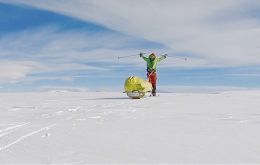
A 33-year-old American man has become the first person to cross Antarctica alone and unassisted. Explorer Colin O'Brady finished in 53 days, ahead of British Army Captain Louis Rudd, 49, after an epic race across the ice. Both men set out on 3 November to complete the journey, which killed a British ex-Army officer two years ago.
-
Wednesday, December 26th 2018 - 08:45 UTC
Japan withdraws from the Whaling Commission to resume commercial hunting

Japan will withdraw from the International Whaling Commission in 2019 to pave the way for the resumption of commercial whaling for the first time in about three decades, the government said on Wednesday, a decision likely to draw international condemnation.
-
Monday, December 24th 2018 - 08:49 UTC
Thousands of sailors and Royal Marines on duty during Xmas and New Year

Thousands of British sailors and Royal Marines stand ready to respond to events at home and abroad this festive season. While many enjoy a well-earned break over Christmas and New Year, nearly 2,000 men and women of the Naval Service are on active duty, while over 2,500 personnel are on standby at home in the UK.
-
Saturday, December 22nd 2018 - 07:32 UTC
Argentina launches the Antarctica Summer Campaign with icebreaker ARA Irizar
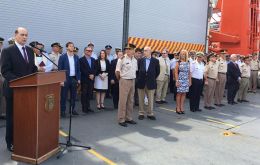
With the departure of icebreaker ARA Almirante Irizar, Argentina launched this week its Antarctica Summer Campaign 2018/19. The re furbished icebreaker is scheduled to develop an intense scientific activity, supply Argentina's bases and stations and replace the teams that will be spending a whole season in Antarctica.
-
Tuesday, December 18th 2018 - 09:13 UTC
Antarctica wildlife exposed to human linked pathogens, including antibiotic resistant microbes
Infectious diseases are commonly passed along from humans to animals, but a new study is the first to document human-linked pathogens on the isolated continent of Antarctica. The researchers discovered antibiotic-resistant microbes and other bacterial strains in bird poop, raising new concerns about the health of Antarctic bird colonies.
-
Friday, November 9th 2018 - 08:48 UTC
Stamps on centenary of the end of WWI issued by BAT and SG
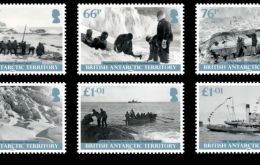
The British Antarctic Territory and South Georgia and South Sandwich Islands marked the centenary of the end of World War I with new stamps. The issue honors members of Ernest Shackleton’s 1914-16 Imperial Trans-Antarctic Expedition who served in the war.
-
Wednesday, November 7th 2018 - 08:34 UTC
Ozone layer recovering, says the latest UN report: new threat from East Asia
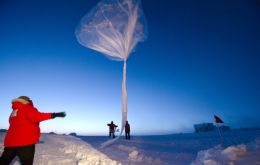
The earth's protective ozone layer is finally healing from damage caused by aerosol sprays and coolants, a new United Nations report said. The ozone layer had been thinning since the late 1970s. Scientist raised the alarm and ozone-depleting chemicals were phased out worldwide.
-
Monday, November 5th 2018 - 18:25 UTC
Microscopic parasite could be affecting food chain near Antarctica

A tiny parasite is leading Australian scientists to rethink how they view Antarctic food chains, after a research showed these microscopic organisms were present in quantities far larger than previously thought, it was reported Monday.
-
Monday, November 5th 2018 - 08:22 UTC
CCAMLR fails to protect Southern Ocean

The Commission for the Conservation of Antarctic Marine Living Resources (CCAMLR) has again failed to take action to protect the Southern Ocean, with no progress made on the critical issues of marine protected areas, climate change, and transshipment.
-
Thursday, November 1st 2018 - 08:18 UTC
IAATO working on new online platform to promote conservation among tourists
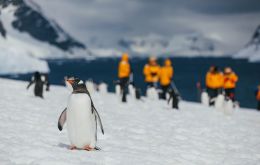
An organization that promotes responsible tourism in Antarctica is embarking on its own digital adventure after partnering with Leeds agency Elementary Digital. The International Association of Antarctica Tour Operators (IAATO) represents more than 100 Antarctic tour operators who are committed to minimizing the impact of travel to this remote and vulnerable region.
